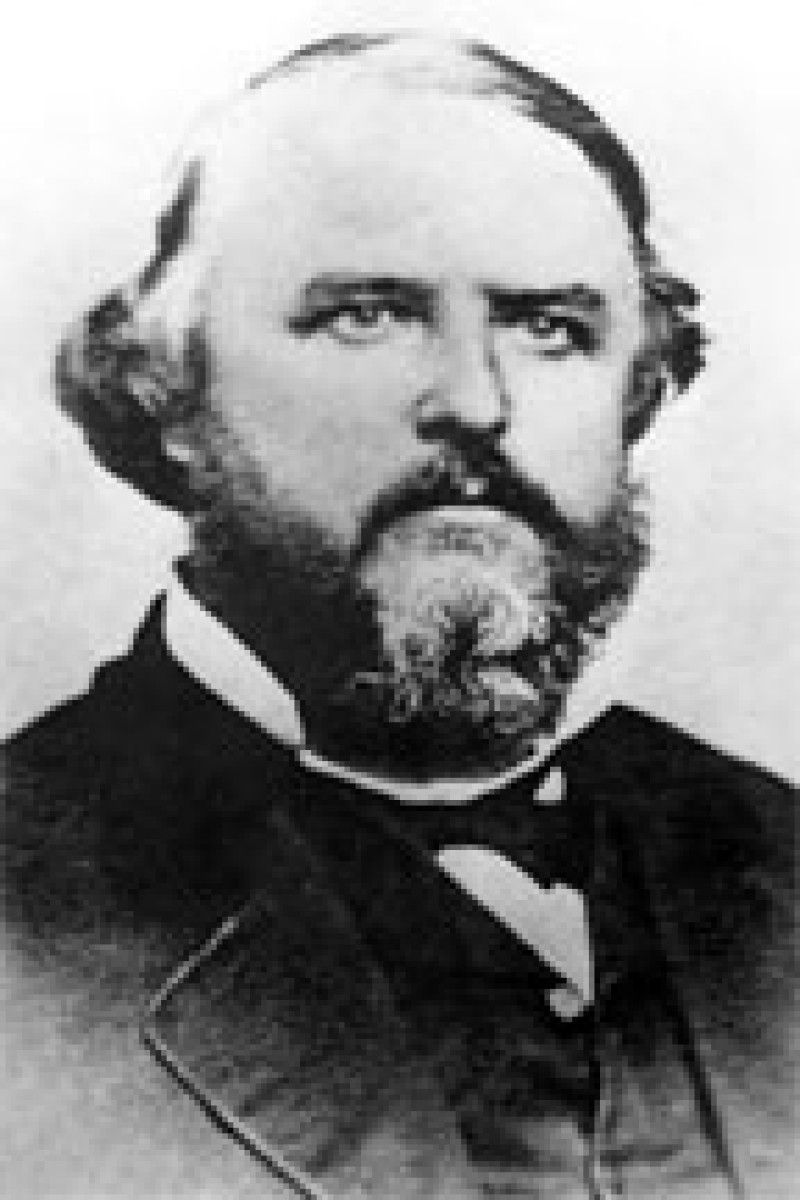George Rex
George Rex held numerous positions in his 33 years of public life. During his career, he also tutored men interested in passing the Ohio bar.
Rex was born in Canton on July 25, 1817 to Catharine and Jacob Rex, was educated in the local schools and studied at the Lutheran Seminary in Canton in 1830. In 1832, when the seminary relocated to Columbus and became affiliated with Capital University, Rex followed to complete his studies of mathematics, philosophy, German language and literature and Latin.
Beginning in the winter of 1833 and for the next three years, Rex returned to Canton and taught in the city’s public schools during winter breaks from his university classes. After graduating from Capital, Rex returned to Canton to read law in the offices of local attorney John Harris. On Oct. 10, 1842, Rex was admitted to the Ohio bar and began a law practice in Canton. Rex moved to Wooster in February 1843 to open a law office.
Wayne County voters elected Rex prosecuting attorney in 1847 and 1849. He also served one year as recorder of the City Wooster in 1848. In October 1851, voters of Wayne and Holmes counties chose Rex to the Ohio Senate. As one of the state senators on the Common School and School Lands Committee, Rex was given the responsibility with two fellow senators to draft a law to modify and simplify school laws previously enacted by the General Assembly. The 1853 school law was the first in Ohio that set uniform property tax rates across the state and called for the taxes to be distributed to school districts based on the numbers of enrolled students. The law also was the first to provide money for school libraries.
Rex declined to seek re-election and returned to his law practice in Wooster. In October 1859, voters again elected Rex prosecuting attorney. He was re-elected to a fourth term in 1861. Wooster voters elected Rex mayor in 1862 for a one-year term. Following the resignation of Hamilton Ritcheson in 1864, Wayne County Common Pleas Court Judge William Sample appointed Rex prosecuting attorney. Rex was elected to a second term in the Ohio Senate in October 1867 and he served from January 1868 through December 1869, before returning to Wooster and his law practice.
On Sept. 11, 1874, Gov. William Allen appointed Rex to the Supreme Court of Ohio. Rex’s opinions were published in volumes 24-29 of Ohio State Reports. After serving the three remaining years of Judge Walter F. Stone’s term, Rex declined to seek election to a full term on the Court because of failing health.
Among Rex’s published opinions that were cited in future Supreme Court opinions was Charles Howard v. State (1874). Charles Howard was convicted in Hamilton County Common Pleas Court of assault with the intent to commit robbery, but acquitted of the charge of robbery. Howard’s attorneys appealed the conviction to the Supreme Court asking for a new trial on the grounds that the common pleas court failed to charge the jury as requested, which constituted reversible error. Rex, in writing for a unanimous Supreme Court concurred with arguments that were presented by Howard’s attorneys and reversed the decision of the Hamilton County Court of Common Pleas, remanding the case for a new trial. Rex, in his opinion, found the Hamilton County Court of Common Pleas had committed reversible error when the trial judge refused to charge the jury as requested and gave improper instructions to the jury. Rex’s opinion affirmed a jury’s right to convict a defendant on an inferior criminal charge when an indictment on a superior criminal charge was brought to a jury trial.
Rex married Ella J. McCurdy in Wooster on May 24, 1853 and the couple raised one child. Rex was a member of the Ebenezer Lodge and the Wooster Chapter of the Ancient Order of Freemasonry. He also served as Deputy Grand Master and Grand High Priest of the Mason’s Grand Chapter of the State of Ohio. Rex maintained a lifelong interest in the subjects he studied in college. Biographers noted that he was an excellent conversationalist, enjoyed friendly debates and fiercely defended the Democratic Party.
After leaving the Court in February 1877, Rex returned to Wooster hoping to resume his law practice. His health failed to improve, however, and on March 27, 1879, Rex died at home and was buried in Kime’s Corner Cemetery, a family cemetery in Congress Township, Wayne County.

b. July 25, 1817
d. March 27, 1879
52nd Justice of the Supreme Court of Ohio
